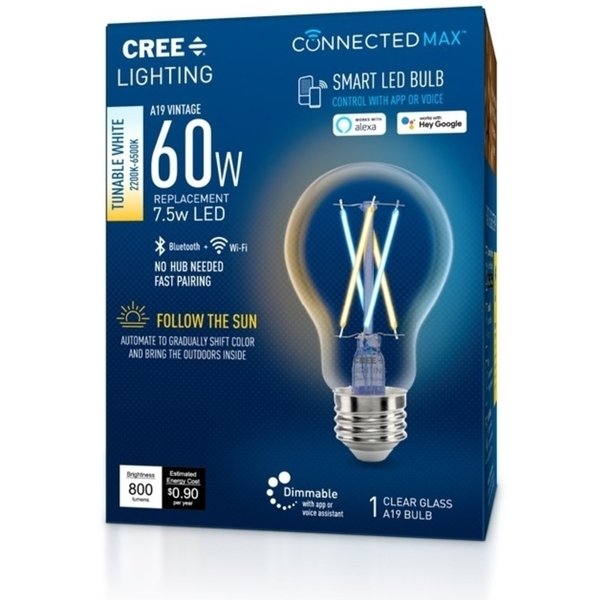Making the Smart Move with No-Hub Smart Bulbs
What are no-hub smart bulbs, you may ask? These bulbs come in various lumens, colors, and price points, but one thing they have in common is they both work with a phone or an app, meaning they don’t require a proprietary connection. With no-hub smart bulbs, you won’t need a hub, such as Z-wave or Zigbee, that wirelessly connects and controls other smart bulbs.
It’s a No-Brainer
Investing in smart bulbs is an inexpensive way to make your house smart. Many smart devices are available to equip your home more technology, such as smart phones, TVs, security systems, doorbells, thermostats, speakers, etc. With smart bulbs, however, you can bring your humble abode up to speed for little cost. Smart bulbs are generally easy to control and require little maintenance.
You can choose from two types of no-hub smart bulbs depending on connection: Wi-Fi and Bluetooth. After a quick look at the benefits and disadvantages these bulbs offer, hopefully you’ll know which type is the best for your space.
Smart Bulbs that Connect to Wi-Fi
Wi-Fi bulbs do exactly what the name suggests; they connect to your wi-fi. These bulbs can usually be operated using an app that is downloaded on your smart phone, meaning you can adjust color, adjust brightness, and turn off or on without having to get up. Bulbrite LED A19 smart bulbs allow you to do just that.
Why choose wi-fi smart bulbs?
CREE-10339
You can control the bulbs by a simple-to-download app. Do your research and make sure the app will work on your phone, whether it be Apple or Android. The bulb’s capabilities depend on the type of app and whether that app offers only on/off functionality or more control options.
You can connect multiple bulbs at a time.
Generally, bulbs that use wi-fi are easier to use.
Some wi-fi bulbs, such as Cree’s LED selectable A19 bulb, offers voice control with Siri, Alexa, SmartThings, and Google Assistant, as well as the ability to schedule personalized lighting routines to match your lifestyle.
What are the disadvantages?
· If the internet goes down or you have a spotty connection, you may find yourself in the dark.
· While not very expensive, wi-fi bulbs are on the higher end cost-wise of the smart bulb family. With that said, they are still the most popular type.
Smart Bulbs that Connect to Bluetooth
Bluetooth smart bulbs are operated by connecting to Bluetooth, so no internet connection or app is needed.
Why choose Bluetooth Smart Bulbs?
The general rule is that your phone must be within 50 feet for the bulbs to work, but you don’t run the risk of a lost internet connection that causes the lights to go out.
Bluetooth bulbs are less expensive than other types of smart bulbs.
They use less energy.
You do not need internet connectivity and do not have to worry about an app’s compatibility with your phone.
What are the disadvantages?
If your phone is out of range, the bulb will no longer be connected.
You can usually only connect one bulb at a time.
For more no-hub smart bulbs options, please visit 1000Bulbs! If you would like to know more about other types of smart lighting or need some help deciding which smart bulb is best for your space, contact one of our friendly experts at 1-800-624-4488. You can also message us on our convenient pop-up chat at the bottom right corner of our web pages.










